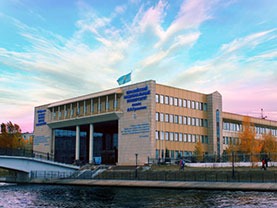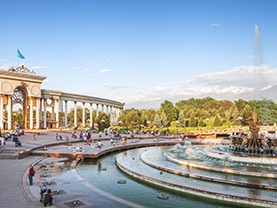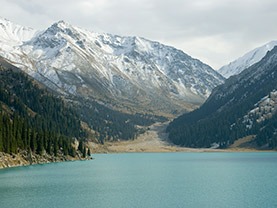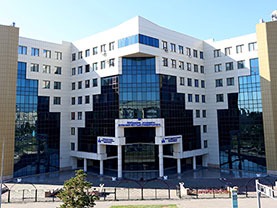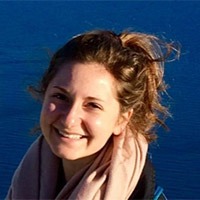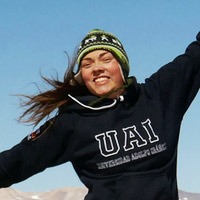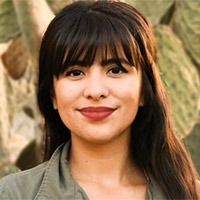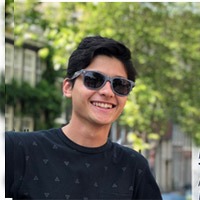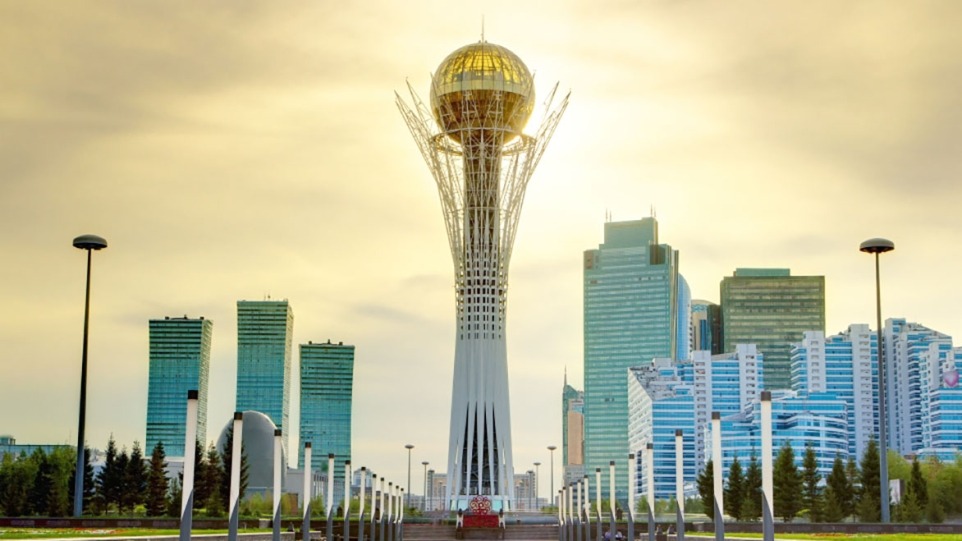
School of Russian and Eurasian Studies in Kazakhstan
Astana, Kazakhstan
Program Facts
Program Type: UA Faculty-led
Credit Type: UA Direct Credit
Level of Study: Graduate , Undergraduate
GPA: 2.5
Class Eligibility: Freshman , Sophomore , Junior , Senior , Graduate
Language of Instruction: English , Russian
Program Open To: UA and Non-UA Students
Explore School of Russian and Eurasian Studies in Kazakhstan
Summer 2023 Dates: June 19 to July 28
The School of Russian and Eurasian Studies in Kazakhstan program gives Russian language students a unique opportunity to learn the language and experience the culture in one of the most vibrant, successful post-Soviet-era countries. The key features of this program are intensive Russian language and culture study at L.N. Gumilyov Eurasian National University (ENU), in Kazakhstan's capital Astana; an opportunity to engage with local communities and ethnic groups, and getting intimately acquainted with Kazakh cultural heritage. During the six-week stay in Kazakhstan, students will enjoy excursions in Astana and around the country.
Overview: The Department of Russian and Slavic Studies at the University of Arizona, in collaboration with L.N. Gumilyov Eurasian National University (ENU), operates an intensive academic program in Astana, Kazakhstan's capital. The program offers students the chance to immerse themselves in the Russian language, experience the Kazakh language and learn more about Kazakh culture. The main component of this program will be an intensive language studies.
ENU, which was founded in 1996 and includes 28 scientific institutions (research institutes, laboratories), 13 academic departments, the Institute of Continuing Education and Advanced Training, a military department, and international cultural and educational centers. About 19,000 students attend ENU, including over 700 international students, all pursuing bachelors, masters, or PhD degrees. The University is ranked 328th in the world according to the QS World University Rankings, the only university in Central Asia to place. ENU is an active participant in international projects, and boasts over 400 partnerships with foreign universities and research centers in Europe, Asia, and America, as well as embassies, and international scientific and educational foundations, including the University of Arizona.
Students are placed into appropriate levels of language instruction after placement testing and assessment of their level of proficiency. Class size should not exceed 10-12 students. Russian language courses are taught by ENU professionals experienced in teaching international students and focused on enhancing intercultural communication, who will emphasize not only written and spoken language skills, but also sociocultural topics to introduce Kazakhstan's traditions and cultures.
Russian Language Courses: Students have the option to enroll in Russian language coursework, earning credit for one of the following course combinations.
Intensive Elementary Russian (RSSS 101/102 - 6-8 units): For students with very little or no previous classroom instruction in Russian. Students will learn to read and understand spoken Russian in basic and predictable everyday contexts (such as introducing themselves, talking about their families, friends, everyday activities and hobbies, ordering a meal in a restaurant, asking directions on the street) and develop basic skills in reading and writing. Students will learn elementary grammatical structures of Russian and acquire basic vocabulary. Upon completion of this course, the students will have novice high or intermediate low language skills.
Intensive Intermediate Russian (RSSS 201/202 - 6-8 units): Students will further develop their language skills in all four modalities (listening, speaking, writing and reading) through communicative activities in and outside the classroom. Students will review basic grammatical and syntactical structures of the Russian language and improve their mastery of this foundation of the language while acquiring new grammatical skills and working on enlarging their active vocabulary. Students will raise their listening, speaking, and communicative skills to the intermediate mid or high level. At the end of the course, students will be able to interact in some aspects of day-to-day life in a Russian-speaking community and will be prepared to enter their home college’s upper-level Russian courses.
Advanced Russian Grammar and Composition (RSSS 301/302 - 6-8 units): Students will work on increasing their level to intermediate high and advanced low or mid. The students will expand and solidify their command of Russian vocabulary, grammar and spelling, and develop advanced listening, reading, speaking, and writing skills. Students will get practice with advanced grammatical topics such as particles, verbal adverbs and numerals, and work on verbal aspect and verbal governance. Students will engage in a wide variety of activities, combining textbook materials with authentic reading texts and videos in a variety of genres. Students will discuss various topics related to both everyday situations and political and social life. At the end of the course, students will prepare and deliver short presentations.
Topics in Russian Linguistics (RSSS 415:001 and RSSS415:002 - 6 credits): Intended for students who have already achieved high proficiency in Russian. Typically, a student at this level will have completed three-four years of the college study of Russian and/or will have lived in a Russian-speaking country for a semester or more. Students taking this course should be comfortable speaking Russian in a wide range of situations, should be easily understood by Russian speakers, should be able to follow and participate in conversations on familiar topics, and should have a firm mastery of grammar and vocabulary. This course is intended to expand the range of registers and styles in which students are comfortable; to familiarize them with the norms of discourse in a range of styles, from academic and journalistic to literary and informal, both in writing and in oral speech. By the end of the course, students will be able to interact in Russian effectively and with ease and they should expect to reach a proficiency level of advanced high or superior.
Students will have the opportunity to enroll in a special class on their host country, Kazakhstan:
Kazakhstan - Heart Of Eurasia (RSSS 195A - 1 credit): Colloquium on Modern Kazakhstan. In the first half of the course, we will explore extraordinary rich traditional Kazakh culture, music, oral traditions, clothing, yurts, and food- capped with celebration of National and Traditional Holidays. The second part of the course will be based on the historical events of great importance in Kazakhstan during the Soviet Era, which include starvation, arrests, exploitation of resources, deportation and return, and modern Kazakhstan's strategic efforts in building a new nation.
UARIZONA FACULTY: Prof. Liudmila Klimanova klimanova@email.arizona.edu
Housing
Students will live in ENU dormitories.
The ENU campus features a modern recreational center, swimming pool, and sports grounds. Free Wi-Fi and study and lounge spaces are available. Students can enjoy meals at ENU's cozy cafeteria.
ENU offers social and cultural events, after-school seminars, and Welcome Center services that UArizona students are welcome to participate in.
Activities and Excursions
Week 1: City Tour - Visit to local attractions, including Bayterek monument, World Expo site "Atameken" complex, and more!
Week 2: Buiratau National Park - Visit to the national park, natural attractions, local yurt, horse riding, and eagle hunting.
Week 3: Free Time and Capital Day Celebrations - On July 6th, Capital Day will be celebrated.
Week 4: "Alzhir" Museum and Memorial Complex - Camp for the wives of traitors to the Motherland, where thousands of women were imprisoned. The camp, which was the largest women's camp in the Soviet Union, operated between 1938 and 1953 and was a place of human tragedy during the period of Stalinist repression.
Week 5: Zerenda Recreation Area (1 night) - Part of the Kokshetau State National Nature Park.
Week 6: Farewell dinner and departure for teachers and students.
Arizona Global scholarships:
Departmental scholarships:
- College of Humanities Scholarships
- SILLC Global Award Fund
- Department of Russian & Slavic Studies scholarships
- Honors College study abroad scholarships
External scholarships:
- Gilman Scholarship (for Pell Grant recipients)
- Fund for Education Abroad
Click here to review the U.S. Embassy & Consulate in Kazakhstan's COVID-19 information page.
ENU is located within walking distance of the following cultural and recreational sites:
- Square of the Defenders of the Fatherland
- Holy Dormition Cathedral
- Synagogue Beit Rakhel Khabad Lyubavich
- Alatau Sports Complex
- Eurasia Entertainment Center
... and many more! Visit the Nur-Sultan Convention Bureau website to learn more about must-see sites!
ENU recommends visiting the following local attractions:
Visit Kazakhstan.Travel for more inspiration!
Good to Know:
LGBTQ+ Equality Index rating: Kazakhstan rates 38/100 (with 100 being the most equal) on Equaldex’s LGBTQ+ Equality Index.
Global Peace Index rating: Kazakhstan ranks 76/163 in the Global Peace Index. The lower the score, the more peaceful the country.
Languages spoken: Kazak (Quazaq, state language) 64%; Russian (official, used in everyday business) 95%
Request More Information
Please enter your contact information and a member of the Study Abroad team will contact you.



